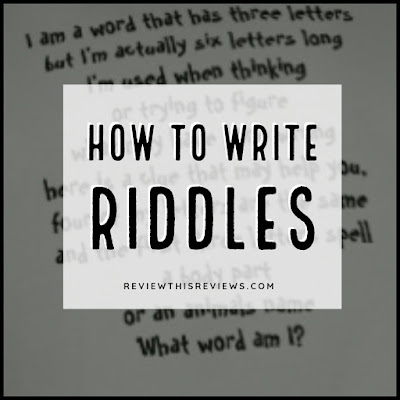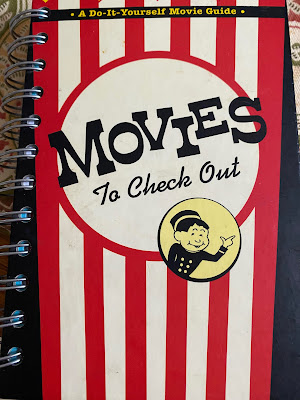 |
| A Review of 6 Tips on How You Can Write Your Own Riddles |
Have you ever written a riddle? It's a crazy knack I happen to have. Today, I'll share some of the riddles I've created with a few tips on how you can write your own.
Why Riddles?
Along with
sayings for greeting cards, I've been writing riddles for most of my life. The ability to toss out one-liners is a genetic anomaly in my family. My dad could make people laugh on a dime; he was hilarious! That chip landed on my brother, who can toss out funny lines anywhere, any time.
The verbal skills possessed by my dad and brother transferred to me in writing form.
So why riddles? Here's why: This world is too serious right now, so to break up the constant barrage of negativity coming at us, I decided to create books about riddles, quotes, and sayings. But in this article, I'll be sharing some tips on how to write a riddle.
An Example of One of My Personally Written Riddles:
I am a word that has three letters,
but I'm actually six letters long,
I'm used when thinking or trying to figure
what may have gone wrong,
here is a clue that may help you,
four of my letters are the same,
and the first three letters spell a body part,
or an animal's name,
What word am I?
(Take a guess in the comment section - try not to peek at other comments in case they've guessed the answer correctly!)
How to Write a Riddle
1. Choose the Answer First
Start with the answer. Pick the word you want to write the riddle about, then go from there.
2. Choose a Word that Has Multiple Meanings or can be Expressed in Multiple Ways
Writing a riddle about a word with multiple meanings (spelled the same or spelled differently) is easier. For example,
Aunt/Ant, Fly, Park, Plant. These types of words allow you to create the riddle from various angles.
Here's an example of one of my riddles with an answer that has multiple meanings:
It's said we all have one
those who believe never doubt,
that everyone is included,
no one is left out,
we also tell it to mean
"there's only one,"
and when it's spelled differently
we use it to run,
wait, don't be confused because
I'll give you some pity,
when spoken out loud
it's the name of a city,
What word am I?
3. It Doesn't Have to Rhyme
Some people can rhyme anything, and others, not so much. Your riddle will work either way. If you need to improve rhyming, write the riddle with a rhythm.
Here's an example of another of my riddles using rhythm:
You write them
you get them
you give them
you hate them
you love them
you dread them
you need them
but you probably
never ever want them
What am I?
4. It's Easier to Write Riddles About Things You Can't Physically See
Try writing a riddle using words representing the unseen, such as
thoughts, ideas, gravity, love, grace, nasty, etc. Think 'invisible' - You get the picture.
5. Think About What People Can Relate to with the Word/Answer
When writing your riddle, think about how people relate to the word. For example, the riddle in point three above is obscure and can technically have more than one answer (although there is a specific answer to it).
In riddle two, the meanings are different, the answer is spelled multiple ways, and the clues are more specific. For example, the particular clues are:
everyone has one, it means just one, you use it to run, it's the name of a city.
6. Test Your Riddles Out on Your Friends and Family
See how difficult it is for your people to answer; they're too complicated if they never solve them. Mix it up to create both easier riddles and more challenging riddles. For Thanksgiving, my family used my riddles for a fun after-dinner game. The game was to see who could solve them the fastest. It was comical to hear them yelling over each other.
If the above riddles are frustrating you, there's more where that came from
here, and you'll also be guided to the riddle answers from that page.
Your Assignment:
Write a riddle with the answer,
"Park" - have fun!
By the way,
in my book (
A Party Game #STUMPED), you'll find my riddle for the word
"Park" on page 70 (it's riddle 56).
Note: The author may receive a commission from purchases made using links found in this article. “As an Amazon Associate, Ebay (EPN), Esty (Awin), and/or Zazzle Affiliate, I (we) earn from qualifying purchases.”



































